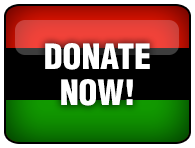Walter Anthony Rodney (23 March 1942 - 13 June 1980)
“….an overall view of ancient African civilisation and ancient African cultures is required to expunge the myths about the African past, which linger in the mind of Black people everywhere. This is the main revolutionary function of African History in our hemisphere.” – Walter Rodney
“Every African has a responsibility to understand the system and work towards it’s overthrow.” – Walter Rodney in How Europe Underdeveloped Africa
“If there is to be any proving of our humanity it must be by revolutionary means” – Walter Rodney in Groundings with my Brothers
Facts about Walter Rodney
1. Walter Rodney was born in Georgetown, Guyana on March 23, 1942.
2. Walter Rodney came from a working class family. His father Edward was a tailor and his mother Pauline was a seamstress.
3. Walter Rodney was married to Dr Patricia Rodney and had three children Shaka, Kanini and Asha.
4. Walter Rodney attended Queen’s College, the top male high school in Guyana, and in 1960 graduated first in his class, winning an open scholarship to the University of the West Indies (UWI). He pursued his undergraduate studies at UWI Mona Campus in Jamaica, where he graduated with 1st class honors in History in 1963. Rodney then attended the School of Oriental and African Studies in London where, at the age of 24, he received his PhD with honors in African History. Rodney’s thesis, A History of the Upper Guinea Coast, was published by Oxford University Press in 1970.
5. As a student in Jamaica and England, Walter Rodney was active in student politics and participated in discussion circles, spoke at the famous Hyde Park and, participated in a symposium on Guyana in 1965. It was during this period that Walter came into contact with the legendary CLR James and was one of his most devoted students.
6. Walter Rodney was multi-lingual. He learnt Spanish, Portuguese, French and Swahili which was necessary to facilitate his research.
7. Walter Rodney’s first teaching appointment was in Tanzania before returning to the University of the West Indies, in 1968.
8. Rodney combined his scholarship with activism and became a voice for the under-represented and disenfranchised – this distinguished him from his academic colleagues. He took his message of Black Power, Black Liberation and African consciousness to the masses in Jamaica. In particular he shared his knowledge of African history with one of the most rejected section of the Jamaican society- the Rastafarians. His speeches and lectures to these groups were published as Grounding with My Brothers, and became central to the Caribbean Black Power Movement.
9. Rodney’s activities attracted the Jamaican government’s attention and after attending the 1968 Black Writers’ Conference in Montreal, Canada he was banned from re-entering the country. This decision was to have profound repercussions, sparking widespread riots and revolts in Kingston on 6 October 1968, known as ‘the Rodney Riots.’
10. Having been expelled from Jamaica, Walter returned to Tanzania after a short stay in Cuba. There he lectured from 1968 to 1974 and continued his groundings in Tanzania and other parts of Africa. Walter Rodney became deeply involved in the African Liberation Struggles at that time.
11. Walter Rodney’s participation in African Liberation Struggles influenced his second major work, and his best known –How Europe Underdeveloped Africa. It was published by Jessica and Eric Huntley of Bogle-L’Ouverture in London, in conjunction with Tanzanian Publishing House in 1972.
12. Walter Rodney established an intellectual tradition which still today makes Dar es Salaam one of the centers of discussion of African politics and history. Walter wrote the critical articles on Tanzanian Ujamaa, imperialism, on underdevelopment, and the problems of state and class formation in Africa. Many of his articles which were written in Tanzania appeared in Maji Maji, the discussion journal of the TANU Youth League at the University.
13. Walter Rodney was a Pan-Africanist. He developed close political relationships with those who were struggling to change the external control of Africa and was very close to some of the leaders of liberation movements in Africa. Together with other Pan-Africanists, he participated in discussions leading up to the Sixth Pan-African Congress, held in Tanzania, 1974. Before the Congress he wrote a piece: “Towards the Sixth Pan-African Congress: Aspects of the International Class Struggle in Africa, the Caribbean and America.”
14. In 1974, Walter Rodney returned to Guyana to take up an appointment as Professor of History at the University of Guyana, but the government rescinded the appointment.
15. Walter Rodney joined the newly formed political group, the Working People’s Alliance, emerging as the leading figure in the resistance movement against the PNC government. During this period he developed his ideas on the self emancipation of the working people, People’s Power, and multiracial democracy.
16. On July 11, 1979, Walter, together with seven others, was arrested following the burning down of two government offices. He, along with Drs Rupert Roopnarine and Omawale, was later charged with arson.
17. From that period up to the time of his murder, Rodney lived with constant police harassment and frequent threats against his life he nonetheless managed to complete four books in the last year of his life: An academic work: A History of the Guyanese Working People, 1881-1905; A political call to action; People’s Power, No Dictator, and two children’s books: Kofi Baadu Out of Africa and Lakshmi Out of India.
18. On Friday 13 June 1980, a remote control bomb, disguised in a walkie-talkie, handed to Walter Rodney by a senior military officer, Gregory Smith, was the weapon used to assassinate him. The bomb exploded in Walter Rodney’s lap while he sat in a car with his brother in Georgetown, ending his life. He was 38 years old.
Reference: http://walterrodneyfoundation.org/about_walter_rodney and http://www.guyanacaribbeanpolitics.com/wpa/rodney_bio.html
In memory of Walter Rodney, we have created a series of activities.

